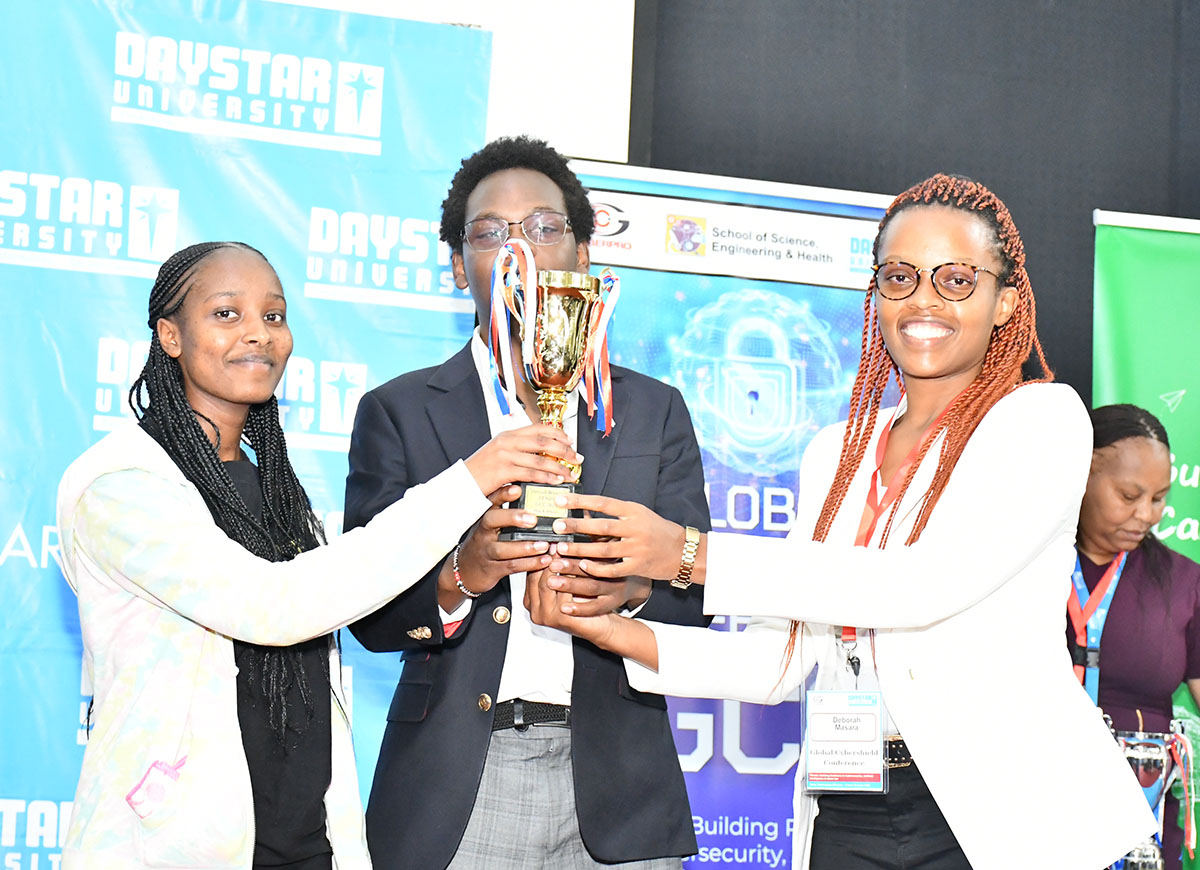
By Hines Louisa and Salesa Dido
[Nairobi, June 5 - 7, 2024] Daystar University, in partnership with Cyberpro Global Ltd hosted the Global Cybershield (GCC) Conference on the theme: "Building Resilience in Cybersecurity, Artificial Intelligence, and Cyber Law."
The three-day conference, which was organized by the School of Science, Engineering and Health and Global Cyberpro Ltd., brought together academia, industry, and the government to discuss Artificial Intelligence (AI), cybersecurity and cyber law, with the aim of fostering collaboration among all stakeholder groups. The conference also provided contextual awareness of the AI and cyber landscape including threats and opportunities for stakeholder groups.
In his welcoming remarks, the Vice-chancellor Prof. Laban P. Ayiro said that the presence of the Government at the conference was a seal of endorsement for what Daystar University is doing in ICT.
Prof. Ayiro lamented that people have equated Chat GPT to AI, which he said, is not the case. He clarified that AI is widely applied to many fields including healthcare, Finance and automation. The VC however, noted that AI raises ethical concerns regarding privacy and bias in algorithm. He was also concerned about its potential impact on employment and social structures.
The Chief Executive Officer of Cyberpro Global, Mr. John Mutunga, emphasized the significance of the partnership between Daystar University and Cyberpro Global in promoting cybersecurity education in Kenya.
Speaking on behalf of the Principal Secretary of ICT, Mr. Emmanuel Kata emphasized the need for a collective effort towards a digital future.
In his keynote address, the Director of Academics at Carnegie Mellon University of Africa, Prof. George Okeyo, noted that a major challenge in the use of AI for quality education is how to manage data ethically and address biases in AI algorithms.
Dr. Lior Tabansky, speaking via Zoom from Tel Aviv University in Israel, said AI cannot be a solution to cyber security. He noted that governments have failed to provide cyber security, and submitted that there is need to make deliberate efforts, at national levels, to provide cyber security and do research in the field.
Speaking on cyber security and gender, Women's Rights Advisor from the Office of the President, and former CEO of PRSK, Ms. Sylvia Mwichuli underscored the importance of inclusivity of women in technology and STEM industry. She highlighted the need for mentorship and training for women in these sectors, seeing that women were the most targeted in cybercrime. “Women need to become warriors in cyberspace because 90 percent of the time, women and girls are the targets of cybercrime,” she said.
Other notable speakers included Kenya’s Ambassador to UNESCO, H.E. Prof. Peter Ngure, who spoke on the power of AI in healthcare and its impact on improving the quality of life.
Mr. Haider Chaudhary from Dell East Africa spoke on human factors in cybersecurity threats from within, while Mr. Julius Muli from the National Health Insurance Fund (NHIF), who discussed data protection and healthcare.
The closing ceremony was officiated by the Dean of the School of Science, Engineering, and Health, Prof. Martha Kiarie-Makara, who reflected on the importance of the conference in fostering knowledge and networking among attendees. She revealed that the papers presented will be compiled into a book of abstracts. She also revealed that Daystar University recently opened a cybersecurity academy and invited everyone, including students and staff, to enroll.
During the conference, the winners of the Hackathon that took place on 4th June were awarded. Karatina University took the first position, taking home Ksh 50,000, followed by Kenyatta University which took the second position with a cash award of Ksh 35000, and while Machakos University scooped the third position, taking home Ksh 25,000.
The Global Cybershield Conference provided a platform for experts to share their insights on the intersection of AI, cybersecurity, and technology. This conference will certainly have lasting impact on academia, the government, and the industry in Kenya and beyond.
Other sponsors included Huawei, Dell, Lenovo, Oracle, IBM, and Sophos.